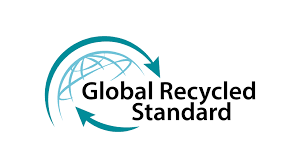The world's largest producer of fabrics is China. That's because they create a ton of materials that make clothes for everyone. Textile industry – China has by far the largest textile production which produces a wide variety of fabrics such as silk, cotton, wool and synthetic fibers etc. They are used in the production of a large number of everyday clothes people wear. This is a cloth producing industry in China and it provides huge amount of clothes to all over the world. The Chinese government contributes to the development of this big industry by framing rules that cater for businesses. For instance, these textiles are free from tariffs on machines that create them. This saves companies money and motivates them to grow, create new products.

From The Top Textile Companies In China
There are many companies that produces textile and taffeta material fabric in China, but some of them become very significant for the support they provide to another country called Bangladesh. Here are seven top companies from China: Huafu, Shandong Ruyi, Shandong Baishengyuan, Texhong, Pacific Textiles, Luthai Textile and Hodo Group. These tend to be successful businesses because they are investing heavily in new ideas and technology. This support allows them to produce a good product at an affordable price, the critical handicap in the textile market. A persistence to innovate and improve their way of manufacturing puts them ahead of the competition. Therefore, they are able to create high quality fabrics and keep the prices down which is of course also beneficial for their customers who ultimately make them competitive in the global market.
What the future looks like for textile creators in China
Almost all of the development in 1970s, textile and polyester taffeta industry began to grow at a steady pace In China. They are anticipated to place a constant growth in the near future, as they have huge production capacities for fabric manufacturing; new technologies can be implanted and found usage by them and target more markets of selling their readymade garments. China has devised specific plans to ensure the steady advancement of its textile industry in a global age. Through quality-conscious production methods and keep increasing advanced technologies, they will probably stay at the top of the textile industry for some time. Additionally, this expansion is critical for the global supply chain because it guarantees enough materials are available to other countries relying on them.
Jointly Fighting China and Bangladesh
Bangladesh is the name of one such great country in which a whole array of clothes are Prepared for all 4 corners. Moreover, to top it off some of the prosperity they experienced in garment industry was due to their assistance with Chinese textile and Mesh Fabric businesses. They have poured money into Bangladesh, a country that through the 21st century came to produce more exported garments than any other on Earth. In exchange, China gets cotton yarn, a "notion" item without which many but the most sophisticated fabric can't be made. This conglomeration bind the two nations more so that it can take an advantage of each other in fashion, textile world. They help one another out by sharing resources and knowledge, which helps not just both economies but also makes the relationship stronger.
Mutual objectives for China and Bangladesh
In the end, because so many people from around the world need clothes … both China and Bangladesh must adhere to certain rules in preparing good goods. Their production processes are of the highest standards that highlights quality, safety and efficiency. Over time, China was also able to improve their quality and cater for the global market with all new technologies. Bangladesh, in contrast has a heavy focus on workers' well being during the manufacturing of garments. GS provides everybody up and down the production process — gets good pay, they work in favorable condition ways. These mutual interests ensure both countries can be successful in the textile industry.

 AR
AR
 BG
BG
 HR
HR
 CS
CS
 DA
DA
 NL
NL
 FI
FI
 FR
FR
 DE
DE
 EL
EL
 HI
HI
 IT
IT
 JA
JA
 KO
KO
 NO
NO
 PL
PL
 PT
PT
 RO
RO
 RU
RU
 ES
ES
 SV
SV
 CA
CA
 TL
TL
 IW
IW
 ID
ID
 LV
LV
 LT
LT
 SR
SR
 SK
SK
 SL
SL
 UK
UK
 VI
VI
 SQ
SQ
 ET
ET
 GL
GL
 HU
HU
 MT
MT
 TH
TH
 TR
TR


